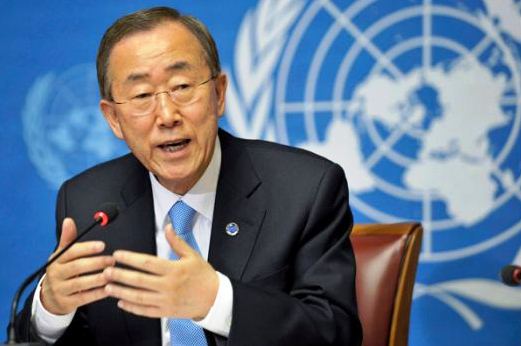United Nations (UN) Secretary-General, Ban Ki-moon, says access to information and communications technology (ICT) is necessary to address the challenges of poverty and climate change.
Ban stated this in his message to the ongoing 11th session of the Internet Governance Forum in Jalisco, Mexico, delivered by Lenni Montiel, Assistant Secretary-General for Economic Development.
“I welcome the theme of this session: ‘Enabling Inclusive and Sustainable Growth’.
“Indeed, the Internet and information and communication technologies can play an important enabling role in our efforts to fulfil the great promise of the 2030 Agenda for Sustainable Development.
“They can deliver smart solutions to address climate change, hunger, poverty and other global challenges.
“They are tools for providing digital and mobile health care and wider access to education to those in rural areas.
“They can also help to empower women, generate efficiencies in industrial and agricultural production, and safeguard the environment,” he said.
The Secretary-General said the 2016 gathering was the first since its 10-year renewal by the General Assembly, which reaffirmed the importance of the Internet Governance Forum multi-stakeholder platform for public policy dialogue.
“Your efforts have made profound impacts as we strive together to create an equitable, human rights-based knowledge society,” Ban said.
The UN chief urged the forum to keep working to ensure universal access to a more open information society.
“Let us address the challenges we face by empowering people everywhere with these transformative technologies so that they can help build a better future for all,” he said.


